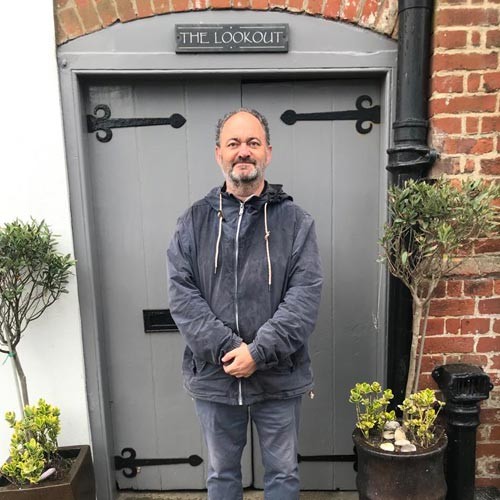Delegates at today’s (18 October) Sustainability in Licensing Conference have been hearing how the development of Web3.0, the Metaverse and the digital space could have a major impact on their business.
The host of the Behind the Brands podcast and ceo of the Fashion Metaverse Club, Warren Parker-Mills chaired a lively and informative panel session featuring Timo Olkkola, founder of Flowhaven, and Glyn Mitchell, soil carbon and soil health agronomist at The Carbon Farm.
The panellists took a closer look at the real world development of Web 3.0, the Metaverse and the digital space, asking how it can be used to influence change and also what it is doing to reduce its own impact.
Warren began by saying that many questions have been asked about the Metaverse – is it just a fad? Is everyone only talking about it because it’s on trend? – before asking Timo and Glyn on what the brand and licensing industry needs to consider in regards to its digital strategy.
“The first thing is that it’s happening,” said Timo. “All of this money has flown into the Metaverse; no one quite knows what it will become and what it will look like, but there are some companies which are trying.
“For brands and licensing especially, you have to be aware that your fans and your brand will be there, and it is really important that you are in control of your brand as early as possible before the mass comes in.”
Glyn added: “This [the Metaverse] is going to be available as net zero cuts in. If you’re not on it and your brand isn’t seen as green, is your brand then going to be as attractive to the youngsters who live in this world?”
While the Metaverse is currently being used by the innovators and the early adopters, Warren pointed out that, even though we’re probably around five years from where we need to get to, it’s not too early to be having these conversations.
“We have to be cognitive about the evolution of the industry and how it is going to go,” he commented.
There are, of course, negatives, too, especially when it comes to how hugely energy intensive things like Bitcoin are.
However, as Glyn pointed out: “If you choose energy suppliers and make sure they are green and clean and new energy, then it will succeed. You can influence the energy powering the Metaverse and where it comes from.”
A key point is that businesses should be implementing it into their digital strategy right from the start.
Warren continued: “Take NFTs, we are only scratching the service of what NFTs can be. The technology will start weaving itself into society and the masses will understand it. There will be so many new revenue streams, ideas and communications that companies can look at, bringing their audiences back in.”
Glyn added: “The UN SDG (Sustainable Development Goals) are all underpinned by harmonising business practices with nature. Well, you gotta give back or she’s going to die. This is a fantastic opportunity to use this new business to return something back to the soil and the earth. As far as I’m concerned, Web3 and SDG needs to be one in one.”
Timo believes that Web3 will “revolutionise ownership” with individuals having the power, while Glyn also raised how excited The Carbon Farm was about the ‘digital twin’ developments, saying this can only happen because of Web3.
In conclusion, Glyn said: “[Web3] is a way forward, but everyone has to be part of the journey and the next development has to be done right. Business is quite extractive to the natural environment, but Web3 has the capacity to be climate positive.”
Timo reiterated that Web3 can’t just be a strategy in isolation; it needs to be part of the whole strategy. “Volatility of the space could be a challenge, and also think about positioning and ‘who am I positioning this digital product to?’ But this could be a really powerful thing for businesses, a chance to create a fantastic community and really bring fans closer to your business.”
Want to read more news like this? Simply sign up to our daily digest by clicking here. You can also follow @LicensingSource on Twitter and @licensing_source on Instagram.





























